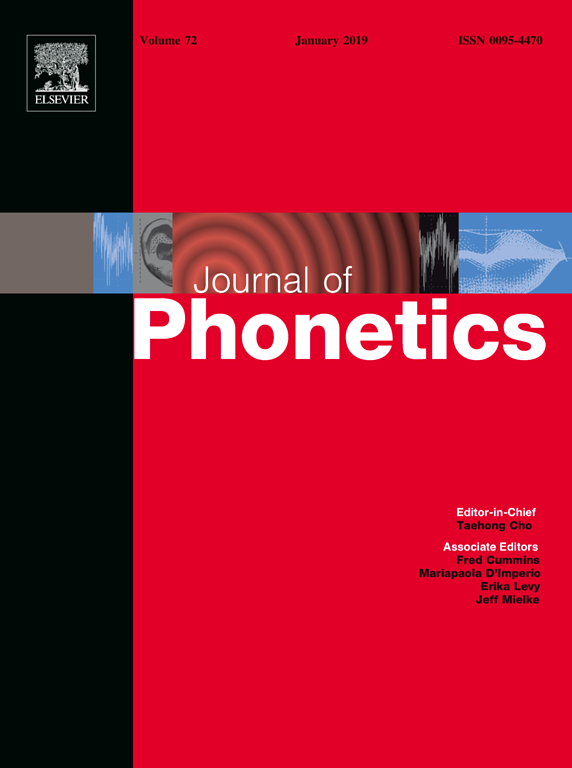This study examines cross-generational transmission of a sociophonetic variable in a heritage language context. Voiceless stop aspiration is a sociophonetic variable in Calabrian Italian, indexing socio-cultural values about the speaker’s social and geographical origin. We investigate the production of voiceless stops by three generations of Calabrian Italians (immigrants and the next two generations) in Toronto, via acoustic and auditory analysis of nearly 5000 tokens from conversational speech in Calabrian Italian. Both Italian and English use long-lag VOT, but they differ in its phonological distribution: long-lag VOT is preferentially associated with pre-tonic, word-initial stops in English and with post-tonic, post-sonorant or geminate stops in Calabrian Italian. We show that, in heritage Calabrian Italian in Toronto, both phonetic implementation (cued by VOT duration) and phonological distribution of aspiration (as cued by perceived aspiration rate across phonological contexts) change cross-generationally, but some changes are non-linear, as third generation speakers appear to reproduce some patterns attested in the speech of first generation speakers. External variables such as the sex of the speakers modulate the cross-generational effects, with males producing more aspirated stops and exhibiting a more conservative behavior in certain phonetic contexts.
Publication Type
- Article



